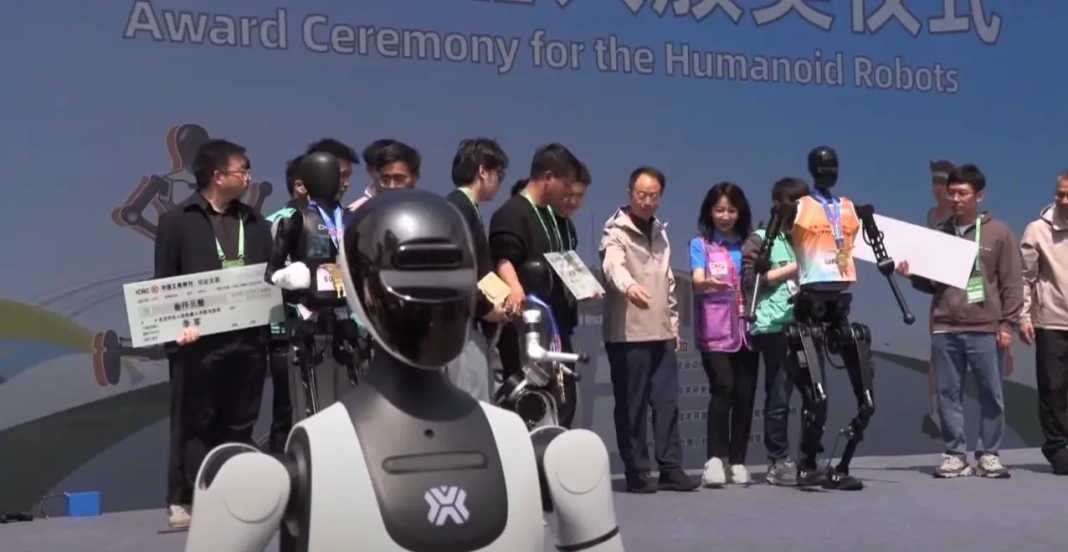In Beijing, sports and technology came together for an unprecedented event: a half-marathon exclusively for humanoid robots. On Saturday, in the Yizhuang Technological Development Zone, dozens of machines—some nearly two meters tall and weighing up to 90 kilograms—lined up at the starting line for a race unlike any other in the world.
The robots, some fully autonomous and others remotely controlled by engineers, completed the 21-kilometer half-marathon under the curious and enthusiastic gaze of spectators. Among the crowd were fans who had traveled from far and wide to witness the event. “I flew in from Wuhan just to experience the atmosphere,” said one enthusiast. “I even invited two robots to run alongside me—it was an unforgettable experience.”
Beyond its spectacular nature, the event highlights China’s rapid progress in the field of robotics. Companies, particularly in the private sector, are investing heavily in emerging technologies, increasingly competing with the United States, their primary economic rival.
“Running a race may seem trivial for a human, but it’s a giant leap for a humanoid robot,” the organizers remarked. According to them, such demonstrations are essential for testing the limits of robots’ endurance, coordination, and autonomy—all crucial factors for their future integration into industry.
Tiang Gong, the Champion Robot
The winner of the race was Tiang Gong, developed by the Beijing Humanoid Robot Innovation Center. He completed the course in 2 hours, 40 minutes, and 42 seconds. In addition to the overall ranking, other awards were given for endurance, gait, and even appearance.
This world-first event could well pave the way for new forms of robotic competitions, especially as artificial intelligence and robotics continue to play an ever-growing role in our society.


